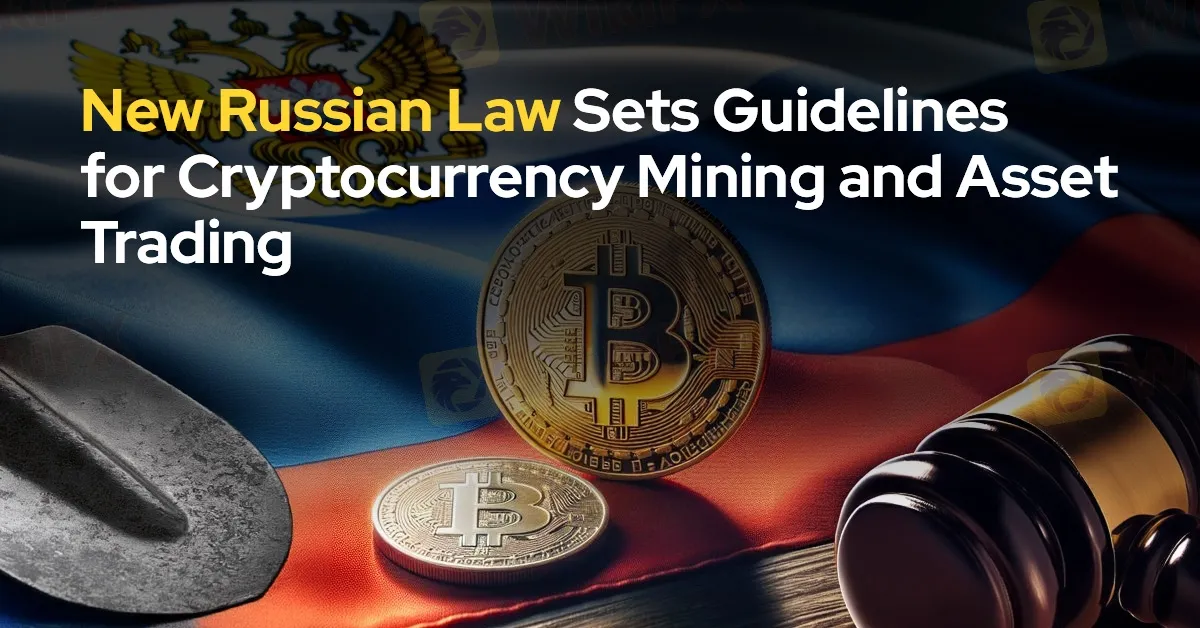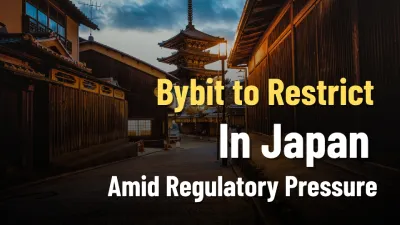Bybit to Restrict Services in Japan Amid Regulatory Pressure
Crypto exchange Bybit will limit access for Japanese users in 2025, citing compliance with strict local regulations.
简体中文
繁體中文
English
Pусский
日本語
ภาษาไทย
Tiếng Việt
Bahasa Indonesia
Español
हिन्दी
Filippiiniläinen
Français
Deutsch
Português
Türkçe
한국어
العربية
Abstract:Russia has taken a significant step in its approach to digital assets by officially legalizing cryptocurrency mining. The new legislation, signed into law by President Vladimir Putin, establishes a detailed legal framework for regulating cryptocurrency mining and outlines the rights and responsibilities of those involved in the sector.

Russia has taken a significant step in its approach to digital assets by officially legalizing cryptocurrency mining. The new legislation, signed into law by President Vladimir Putin, establishes a detailed legal framework for regulating cryptocurrency mining and outlines the rights and responsibilities of those involved in the sector.
Published on Russias official legal information portal, this new law brings clarity to the previously unregulated realm of cryptocurrency mining. By officially recognizing mining as a legitimate economic activity, the Russian government integrates it into the broader economic framework, rather than treating it merely as a tool for issuing digital currency.

The legislation stipulates that only Russian legal entities and registered individual entrepreneurs can legally engage in cryptocurrency mining. However, individual miners can operate without registration as long as their energy consumption remains within government-set limits. This provision allows smaller-scale miners to continue their activities with fewer formalities, while larger operations will face more stringent regulations.
In addition to legalizing mining, the law permits the trading of foreign digital financial assets on Russian blockchain platforms. Nonetheless, the Bank of Russia retains the authority to ban certain assets if they are considered a threat to the countrys financial stability. This cautious approach reflects the government's attempt to balance fostering innovation with safeguarding the financial system.
The legislation also imposes strict rules on cryptocurrency advertising and promotion. It bans the offering of digital assets to an unrestricted audience, aiming to curb the widespread promotion of potentially risky investments.
Furthermore, the law provides for the possibility of banning cryptocurrency mining in certain regions or territories, giving the government the flexibility to regulate the industry according to local conditions.
President Putin has underscored the significance of regulating cryptocurrencies and digital assets as a key area for economic growth. In a recent government meeting, he emphasized the need for Russia to capitalize on this opportunity and create a strong legal framework to support the development of digital assets both domestically and in international trade.

Disclaimer:
The views in this article only represent the author's personal views, and do not constitute investment advice on this platform. This platform does not guarantee the accuracy, completeness and timeliness of the information in the article, and will not be liable for any loss caused by the use of or reliance on the information in the article.

Crypto exchange Bybit will limit access for Japanese users in 2025, citing compliance with strict local regulations.

Coinbase unveils stock trading, prediction markets, and a tokenization platform as it aims to evolve beyond crypto and bridge traditional finance.

Is your MBFX withdrawal request pending even after months of raising it? Has the broker defrauded you? Does the broker keep changing spreads to pile losses for you? Have you lost due to its copy trading activities? Is the customer support service silent to your trading queries? Many traders have called out the broker for these alleged wrongdoings. In this MBFX review article, we have highlighted these trading concerns. Read on!

Uniglobe Markets claims to be an online trading company that offers many different types of investments, including foreign currency and raw materials. The company tries to attract traders by offering high leverage, different account options, and popular MetaTrader trading software. However, there is one major problem: the company does not have proper regulatory oversight. This creates serious concerns about the safety of clients’ capital and whether the company operates honestly. Read on to learn more about its regulatory status.
